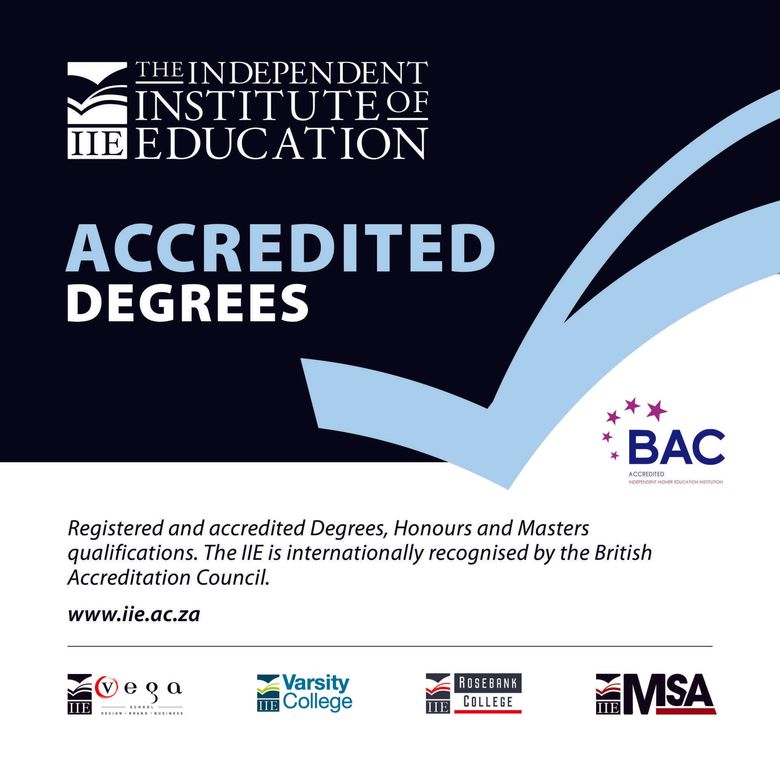STUDENTS: DON'T GET TRIPPED UP BY OPEN BOOK ASSESSMENTS
The World of Work • March 26, 2018
Many students will, for the first time, encounter what is called an open book assessment once they start writing tests and exams at their public university or private higher education institution. And while the open book method is a great tool for measuring depth of understanding, too many students initially – and mistakenly - think that taking a book into the testing centre means little to no preparation is required. This could not be further from the truth, an education expert warns.
"Open book assessments are more engaging to the students, because they need to use a combination of memory, creativity and logical thinking. They also result in less pre-assessment anxiety for the students knowing they don't need to recall facts. This is especially advantageous to students who have difficulty in this area," says Nola Payne, Head of Faculty: Information and Communications Technology at The Independent Institute of Education, SA's largest private higher education institution.
Payne says that it is however a major misconception that an open book assessment means there is no need to study or prepare before the exam.
"This is untrue, because students need to really engage with the material, understand how the concepts and theory can be applied and they should, in particular, practise any numeracy or practical content before they enter the exam room," she says.
Time management is also a factor in open book assessments, adds Payne.
"There is little time for students to page through their textbooks and other resources searching for answers. A good open book assessment will not have the answers in the permitted resources, but rather refer to the methods and related content. The assessment will still need to be engaged with and students required to provide a carefully considered response."
Payne says there is a familiar scenario that plays out for many students who are not used to the open book method of testing.
"Firstly, there may be a misconception that you don't need to study, because you will have access to prescribed textbooks and resources, which is false.
"Secondly, upon sitting down and reading the exam, students may realise that the books won't contain the answers as they may have thought.
"And then finally, the student may realise that the examiner doesn't want recalled facts, but a deeper understanding of the content."
It is therefore incumbent on all good institutions to ensure that new students – many of whom will be unfamiliar with the open book approach – are properly coached before entering the exam room, says Payne.
HIGHER EDUCATION INSTITUTIONS MUST MODERNISE TESTING METHODS
In addition to ensuring students are empowered to perform optimally when taking open book tests, good institutions need to review and update the methodology of these kinds of tests, with particular attention to developments in the digital space, she says.
"Traditionally, open book assessments allowed students access to printed material authorised by their lecturers," notes Payne.
"That was acceptable when students purchased hard copy textbooks or used articles or publication as references. This is no longer the case. A large proportion of students, both nationally and internationally, no longer purchase hard copy books but rather make use of e-books, online videos, tutorials and web pages for their content and to enhance their learning. Taking this learning style into account, academic assessment methods need to adapt to the digital age."
However too many institutions remain reluctant to change their assessment methods and have discounted "the new way of learning" that the current generation of students use.
"Progressive institutions must make the necessary digital resources available for students to reference in the open book assessment, but still ensure that the assessment requires the students to use these as references and not search for an answer in the permissible resources.
"By providing access to these digital resources, it would be important for the institution to build in restrictions such as that no student will be able to message their peers. These can be restricted (along with locking down browsers) by using smart software solutions," she says.
The open book assessment makes sense when one looks forward to the workplace, where an employee will never be given a task while not being permitted to complete it by accessing the internet.
"The employer expects the employee to have the fundamental knowledge for their chosen career, but expects the employee to be able to use that knowledge to construct a solution – much like an open book assessment," says Payne.
She argues that if citizens and employees of today (and in future) are expected to have access to the internet to perform certain tasks in their daily lives, it doesn't make sense that institutions would be reluctant to test students without this resource and rather use traditional closed book assessments.
"We need to prepare our next generation to be able to adapt to the workplace and provide them the necessary skills to use to be more efficient and effective in their careers.
"Employers would prefer to have employees that can use all the tools available to them to come up with great solutions and not employees who are great at recalling facts. There will always be things we don't know, and this includes specialists in all areas or disciplines. The amount we don't know far exceeds that which we do. And the most valuable skill we can provide our youth is being able to sort and filter relevant information and apply it in a meaningful way."
DID YOU KNOW?
The Independent Institute of Education (The IIE) is a division of the JSE-listed ADvTECH Group, Africa's largest private education provider. The IIE is the largest, most accredited registered private higher education institute in South Africa, and the only one accredited by The British Accreditation Council (BAC), the independent quality assurance authority that accredits private institutions in the UK. By law, private higher education institutions in South Africa may not call themselves Private Universities, although registered private institutions are subject to the same regulations, accreditation requirements and oversight as Public Universities.
The IIE has a history in education and training since 1909, and its brands - Rosebank College, Varsity College, The Business School at Varsity College and Vega - are widely recognised and respected for producing workplace-ready graduates, many of whom become industry-leaders in their chosen fields. The IIE offers a wide range of qualifications, from post-graduate degrees to short courses, on 20 registered higher education campuses across South Africa.












